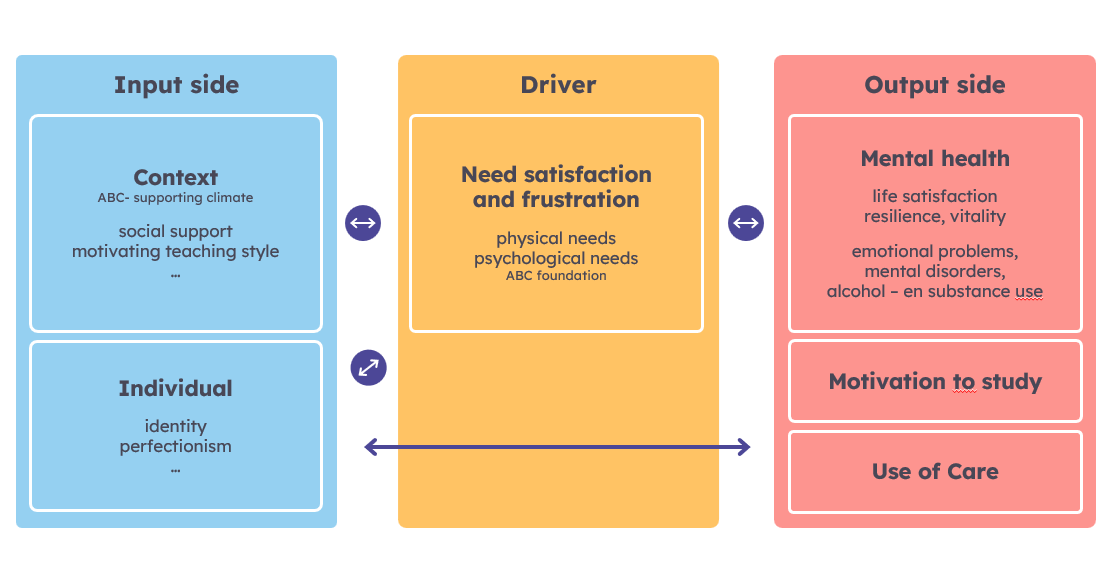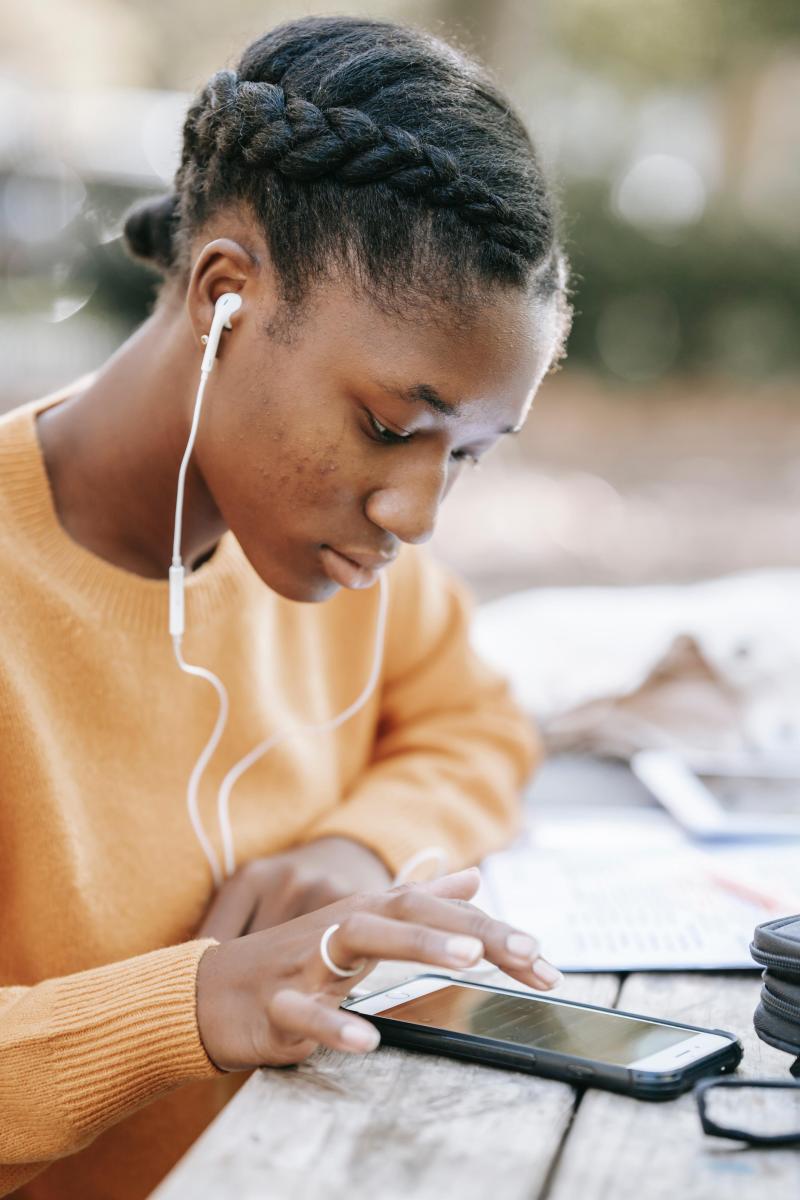Methodology
This page describes the purpose of the Welzijnsmonitor, the research questions, the measuring tool, how contact was made and data collected and the statistics.

Did you know this?
The Monitor provides an annual and multi-year evolving picture of mental health, resilience and school motivation, representative of students in higher education in Flanders and Brussels. The Monitor generates specific action points and recommendations for policy and practice that translate to the macro, meso and micro level. In this way, appropriate interventions and tools such as MoodSpace can be developed in an evidence-based manner, and we evolve towards a 'community of caring'.
Conceptueal model
The Monitor starts from the vision that mental health is more than the presence or absence of psychological complaints and disorders. The monitor charts both positive and negative indicators of mental health. Both are worthy of attention. Even though some students do not experience emotions such as gloominess or loneliness, that does not necessarily mean they are full of energy.So we do not only pay attention to psychological complaints and disorders, and to alcohol and substance use, but also to satisfaction with life and vitality – two positive indicators of mental health.

The monitor also measures various key concepts associated with students’ mental health. On the input side, personal factors such as identity and perfectionism are measured, along with contextual factors such as social network, support and the perceived motivational teaching style. In terms of output, the focus is more on motivation and the use of care.
The monitor applies a needs-based perspective, with a focus on basic physical and psychological needs. In fact, these needs function as drivers for the personal growth and mental health of young people. Simultaneously, they act as signals of vulnerability to problematic behaviour when frustration occurs. Below, the key concepts from the theoretical model will be briefly introduced.
Contact and data collection
The research was approved by the ethics committee of UZ Leuven (S62111) and was conducted in partnership with the eighteen Flemish higher education institutions.
All students with a degree contract who are taking a master’s, vocational, bachelor’s, higher master’s (manama) or higher bachelor’s (banaba) degree in the academic year 2022-2023, whether they are in their first year or a higher year, received an invitation via their student email address in the period between 1 October and 31 December 2022, containing a personal link for voluntary participation. Non-responders and students who had not yet completed the questionnaire were invited up to eight times using a weekly reminder email.
After clicking on the link in the invitation email, the student was sent to a landing page with more information about the purpose, design and content of the Monitor, a privacy statement and a consent form. Only after digitally signing the consent form were students directed to the questionnaire.
At the end of the questionnaire, students were given a feedback report with basic information about their mental health and referred to reliable websites and contact points for advice and help, both inside and outside their educational institution.

The median time to complete the questionnaire (including going through the information video, informed consent and reading through the feedback report) was 27 minutes.
Measures
The stem of the Monitor includes the predetermined questionnaire World Mental Health - International College Student Initiative (WMH-ICS). That is supplemented by surveys of the Basic Psychological Needs or ABC experiences from Self-Determination Theory as a focus and engine for growth and the measurement of study motivation, vitality and life satisfaction.
In addition to that strain, additional constructs such as identity, perfectionism, social support, teacher style and help-seeking behavior are measured in subsamples in a standardized manner.
The report describes the measurement instruments in more detail.
Statistics
To ensure that the data of the current research population was representative of the entire student population, the data was weighted for the socio-demographic variables (age, gender, socio-economic status (grant) and education level (university of applied sciences or university)) that were available for the entire population of university of applied sciences and university students in Flanders.
Descriptive statistics were used in terms of averages, percentages and logistic regressions where dichotomous and ordinal outcome variables were related to predictors. The logistic regression coefficients of the independent variables in the model were converted into odds ratios (OR). The odds ratio is the ratio of two sets of odds. The odds of an event are the ratio between the probability that this event (for example, a generalised anxiety disorder) will occur and the probability that it will not. We used ORs instead of relative risk, because ORs are independent of the prevalence of the measure of outcome. In continuous outcomes, a General Linear Model (GLM) was used: a flexible generalisation of ordinary linear regressions, which allows response variables with a distribution other than the norm. For certain themes, in-depth
For certain themes, in-depth analyses were carried out. The unique role of psychological variables in the prediction of health was examined through linear regression analyses (theme of basic needs). Using cluster analyses a person-centred approach was applied to identify motivation profiles (theme of motivation to study). The role of a motivating teaching style and the motivation for the choice of study in the prediction of study satisfaction and motivation were investigated by means of linear regression analyses (for the theme of identity).
Powerful stories
You are not alone. Get inspired by other students' stories about vulnerability and doubt. But above all about the power of connectedness.
Go to the stories